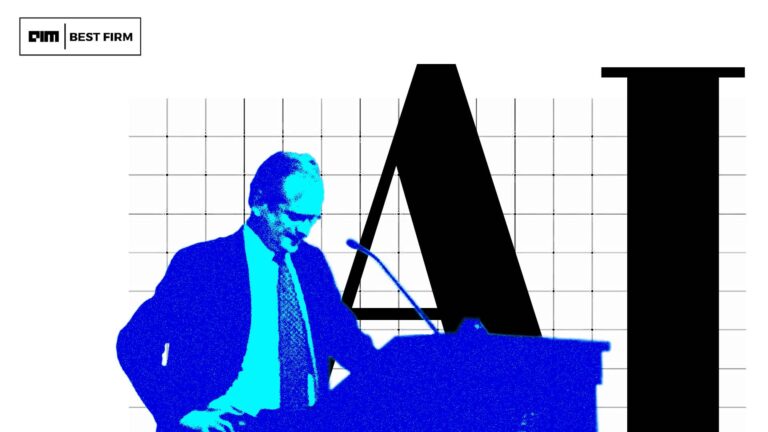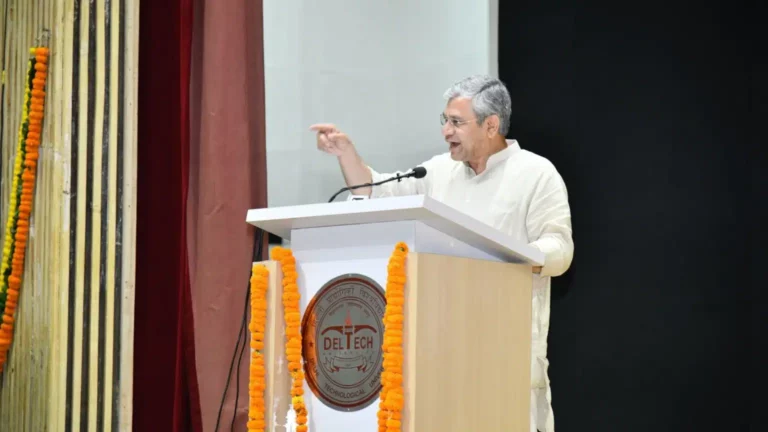Many companies have learned how to use AI tools and run small test projects. However, fewer are successfully addressing the cultural side of using AI. The real challenge now is to scale AI throughout the organization, build trust in its outcomes, and ensure that employees understand and support its potential.
For AI to succeed, organizations need more than data scientists and infrastructure. They need teams that are curious, agile, ethically grounded, and open to experimentation. They need leaders who think long-term and employees who feel empowered to innovate responsibly.
Interestingly, some of the most forward-thinking AI firms in India find that building the right internal culture isn’t something that happens in isolation. They engage with the outside world, partnering with global tech giants, contributing to open-source communities, collaborating with universities, exploring startup ecosystems, and joining government-industry coalitions to shape how their teams think, work, and evolve.
These external engagements serve as catalysts for internal change. They expose teams to new ways of thinking, push companies to adopt higher standards, and embed fresh energy into everyday workflows.
Let’s look at how companies across India are using these connections to actively reshape their internal AI culture:
Partnerships that Influence Mindset and Methods
Wipro’s recent launch of its GitHub Center of Excellence in Bengaluru is a deliberate push to create a developer culture that aligns with the pace and practices of modern AI. By training teams on tools like GitHub Copilot and encouraging participation in open community-led events, Wipro is helping its people adopt a mindset of experimentation and speed.
Similarly, Infosys has partnered with Meta to build a Center of Excellence focused on open-source AI models. This initiative is designed to get teams hands-on with foundational models as contributors. It reflects a shift from delivery-oriented execution to exploration and co-creation, which changes how teams perceive their role in innovation.
Bringing Academia into the Fold
Tech Mahindra’s collaboration with the UK’s Open University is actively influencing how internal skilling programs are structured. The focus now includes responsible AI, long-term thinking, and problem-solving through interdisciplinary learning. This conveys a clear message to teams: AI encompasses context, consequence, and continuous learning.
These university linkages help reinforce a culture where learning doesn’t stop at onboarding. They help employees stay curious, current, and grounded in responsible development practices.
Open Source Is Making Teams More Outward-Facing
One of the most interesting developments in India’s AI scene is how open-source contributions shape internal thinking. For example, Soket AI Labs in Bengaluru released the Pragna-1B AI model in collaboration with Google Cloud, an open-source, multilingual foundational model. By making this resource freely available, Soket has supported the developer ecosystem and created a more community-aware internal team.
Open-source work encourages internal teams to think beyond the company, to consider usability, reproducibility, and collaboration. It forces teams to write better code, document more clearly, and accept external feedback. That’s a healthy kind of pressure.
Startup Exposure Is Breaking Bureaucracy
Engaging with AI startup ecosystems is another way companies are shifting internal cultures. Google’s AI Startup Accelerator and NVIDIA’s Inception program are helping new ventures across India scale. However, established firms are paying close attention, sometimes by hiring from these ecosystems and, other times, by co-developing products with them.
What comes back into the company is a startup mindset: fewer layers, faster cycles, and a closer focus on real-world problems. This kind of cross-pollination is helping even large firms cut through red tape and encourage frontline innovation.
Regulatory Coalitions Are Driving Responsible AI From the Top
The CoRE-AI coalition, a group of over 30 tech and consulting companies, is collaborating to create responsible AI frameworks. This group is actively shaping how companies train their teams, draft internal guidelines, and govern their AI systems.
IBM India’s work with government bodies to train millions in AI has a similar dual impact. It supports national skilling goals and prompts internal action. When external stakeholders start raising the bar on ethics and inclusivity, internal teams get more serious about aligning with those values.
From External Inputs to Internal Change
All of these examples point to one thing: meaningful external engagement changes how teams behave on the inside. When companies expose their people to diverse ecosystems, from academic labs to developer communities, they create a ripple effect. New habits form, old assumptions are challenged, and cultures shift.
Importantly, these engagements make internal change feel less like a mandate and more like a natural evolution. People learn by doing, seeing what others are doing, and being part of something bigger than their team or company.
So here’s the question for every company leader building an AI-first organisation: Are your external engagements driving internal transformation, or are they just partnerships on paper?










